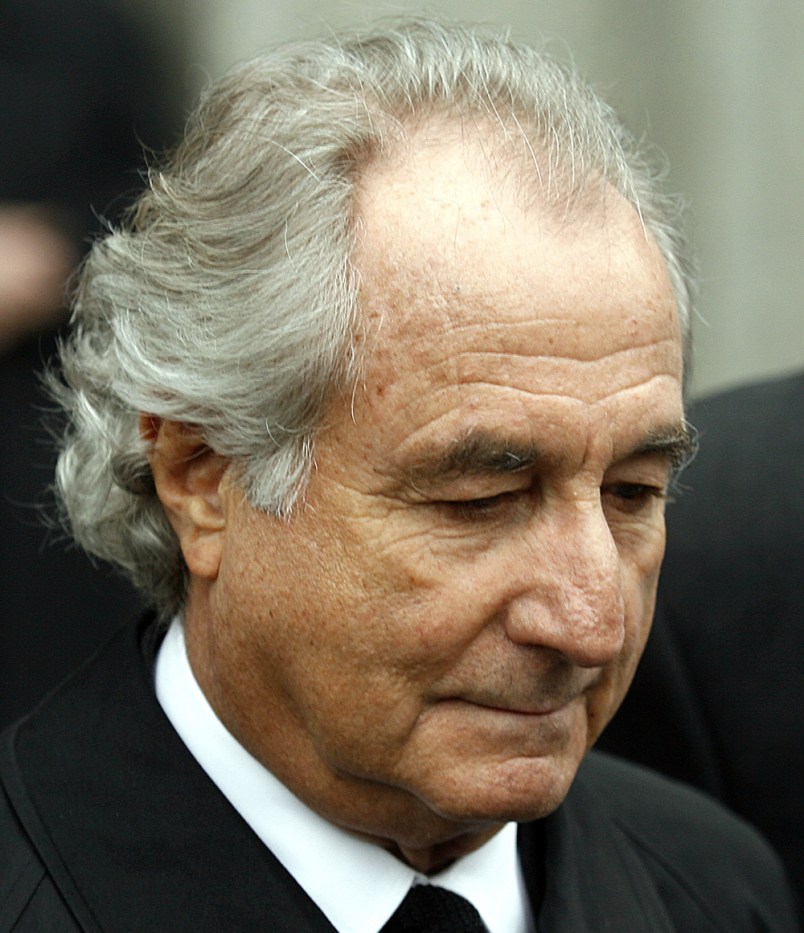It’s not really news that the SEC screwed up big-time on Bernard Madoff. But the just released executive summary (pdf) of the agency’s inspector general report really brings home just how far that failure went.
The summary, produced by SEC inspector general David Kotz, paints a picture of a series of botched investigations going back to 1992, in which inexperienced, unsophisticated and incurious agency examiners repeatedly failed to take seemingly obvious steps that would have uncovered Madoff’s massive scam. And it shows how Madoff used his air of authority to confuse and intimidate the over-matched Feds in order to keep them at bay.
Kotz’s office says in the summary — which precedes a full report to be released in the coming days — that it found six substantive complaints that “raised significant red flags concerning Madoff’s hedge fund operations and should have led to questions about whether Madoff was actually engaged in trading.”
The agency’s biggest screw up, says the summary, was the fact that examiners never verified Madoff’s trading through an independent third party.
The details of that failure are more astonishing still. Madoff at one point told examiners that all his trades were cleared through his account at the Depository Trust Company (DTC), a clearing agency — and he gave the examiners his DTC account number. At that point, Madoff told Kotz in an interview, “I thought it was the end game, over. Monday morning they’ll call DTC and this will be over.” Amazingly, the SEC never followed up with DTC. Madoff said he was “astonished.”
The summary almost makes clear that the SEC’s right hand didn’t know what the left was doing. It notes with astonishment that at one point, two Madoff examinations were going on at the same time within the agency, without either being aware of the other. It was Madoff himself who informed one team of the other’s existence.
And it repeatedly portrays and enforcement staff that lacked the technical expertise to understand key aspects of the material they were investigation. Writes Kotz:
The relatively inexperienced Enforcement staff failed to appreciate the significance ofthe analysis in the complaint, and almost immediately expressed skepticism and disbelief. Most of their investigation was directed at determining whether Madoff should register as an investment adviser or whether Madoff’s hedge fund investors’ disclosures were adequate.
That failure of understanding extended to the management level. In regard to the first complaint submitted by Harry Markopolos, the whistle-blower who did the most to try to bring Madoff’s fraud to the SEC’s attention, the summary finds:
Markopolos explained his analysis presented in the 2000 complaint at a meeting at the SEC’s Boston office and encouraged the SEC to investigate Madoff. After the meeting, both Markopolos and an SEC staff accountant testified that it was clear that the BDO’s Assistant District Administrator did not understand the information presented.
Our investigation found that this was likely the reason that the BDO decided not to
pursue Markopolos’ complaint or even refer it to the SEC’s Northeast Regional Office.
The summary also gives a glimpse of how Madoff held off the Feds — and how easily they accepted his lies. Madoff, writes Kotz, “carefully controlled to whom [the SEC examiners] spoke at the firm.”
On one occasion, when a Madoff employee was speaking to the
NERO examiners at Madoff’s firm, after a couple of minutes, another Madoff employee
rushed in to escort her from the conversation, claiming she was urgently needed. When
the examiners later asked Madoff the reason for the urgency, Madoff told them her lunch
had just arrived, even though it was 3:00 o’clock in the afternoon.
And it shows how Madoff “made efforts during the examination to impress and even intimidate the junior examiners from the SEC.”
Madoff emphasized his role in the securities industry during the examination. One of the NERO examiners characterized Madoff as “a wonderful storyteller” and “very captivating speaker” and noted that he had “an incredible background of knowledge in the industry.” The examiner said he found it “interesting” but also “distracting” because they were there “to conduct business.” The other NERO examiner noted that “[a]ll throughout the examination, Bernard Madoff would drop the names of high-up people in the SEC.”
Indeed, one senior Washigton examiner reportedly told more junior examiners that Madoff “was a very well-connected, powerful, person,” a comment that was taken as an effort to warn them off pursuing the fraudster too aggressively.
The final, failed Madoff investigation of 2006 — triggered by a detailed Markopolos complaint — was perhaps the most egregious. According to the summary, most of the investigative work was done by a staff attorney “who recently graduated from law school and only joined the SEC nineteen months before she was given the Madoff investigation. She had never previously been the lead staff attorney on any investigation, and had been involved in very few investigations overall. The Madoff assignment was also her first real exposure to broker-dealer issues.”
According to the summary, that inexperience helps explain why, when Madoff told the examiners that he got such unprecedentedly good return simply because he had a good “feel” for the market, they took that nonsensical explanation at face value.
As we reported earlier, the top lawyer on this examination subsequently received the highest possible performance rating for her “ability to understand and analyze the complex issues of the Madoff investigation.”






